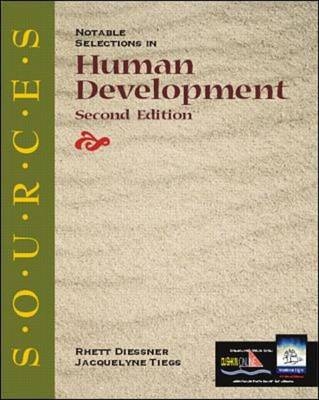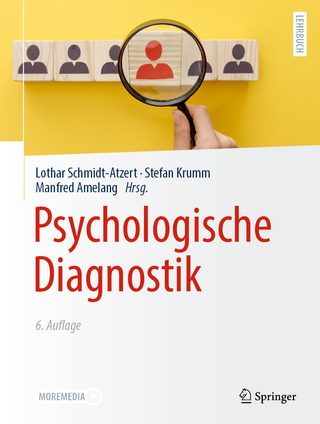Part 1. Theories of Developmental Psychology CHAPTER 1. The Grand Theories 1.1. Sigmund Freud, from An Outline of Psychoanalysis 1.2. Jean Piaget, from "The Genetic Approach to the Psychology of Thought", Journal of Educational Psychology 1.3. Erik Erikson, from Childhood and Society, 2d ed. 1.4. Lawrence Kohlberg, from "The Child as a Moral Philosopher", Psychology Today 1.5. Carol Gilligan, from In a Different Voice: Psychological Theory and Women's Development 1.6. Howard Gardner and Joseph Walters, from "A Rounded Version", in Howard Gardner, Multiple Intelligences: The Theory in Practice 1.7. William Wordsworth, from The Works of William Wordsworth CHAPTER 2. Non-Western Classics 2.1. Ken Wilber, from "The Spectrum of Development", in Ken Wilber, Jack Engler, and Daniel P. Brown, eds., Transformations of Consciousness: Conventional and Contemplative Perspectives on Development 2.2. Baha'u'llah, from The Seven Valleys and the Four Valleys, trans. Marzieh Gail 2.3. K'ung Fu-Tzu (Confucius), from The Great Learning, in Wing-Tsit Chan, comp. and trans., A Source Book in Chinese Philosophy CHAPTER 3. Genes and Environmental Influence 3.1. Anne Anastasi, from "Heredity, Environment, and the Question 'How?'" Psychological Review 3.2. Alexander Thomas, Stella Chess, and Herbert G. Birch, from "The Origin of Personality", Scientific American Part 2. Infancy and Early Childhood CHAPTER 4. Development in Infancy 4.1. Jean Piaget, from The Origins of Intelligence in Children, trans. Margaret Cook 4.2. Mary D. Salter Ainsworth, from "Infant-Mother Attachment", American Psychologist CHAPTER 5. Development in Early Childhood 5.1. Jean Piaget, Barbel Inhelder, and Edith Mayer, from "The Co-ordination of Perspectives", in Jean Piaget and Barbel Inhelder, The Child's Conception of Space, trans. F. J. Langdon and J. L. Lunzer 5.2. L. S. Vygotsky, from Thought and Language, ed. and trans. Eugenia Hanfmann and Gertrude Vakar 5.3. Mildred B. Parten, from "Social Participation Among Pre-School Children", The Journal of Abnormal and Social Psychology 5.4. Albert Bandura, Dorothea Ross, and Sheila A. Ross, from "Imitation of Film-Mediated Aggressive Models", The Journal of Abnormal and Social Psychology 5.5. Diana Baumrind, from "Child Care Practices Anteceding Three Patterns of Preschool Behavior", Genetic Psychology Monographs Part 3. Middle Childhood CHAPTER 6. Cognitive Development 6.1. B. F. Skinner, from About Behaviorism 6.2. Noam Chomsky, from "A Review of B. F. Skinner's Verbal Behavior," Language 6.3. Jean Piaget, from The Child's Conception of Number CHAPTER 7. Social and Personality Development 7.1. Robert L. Selman and Anne P. Selman, from "Children's Ideas About Friendship: A New Theory", Psychology Today 7.2. Jean Piaget, from The Moral Judgment of the Child, trans. Marjorie Gabain 7.3. Beatrice Whiting and Carolyn Pope Edwards, from "A Cross-Cultural Analysis of Sex Differences in the Behavior of Children Aged Three Through Eleven", The Journal of Social Psychology Part 4. Adolescence CHAPTER 8. Physical and Cognitive Development 8.1. Mary Cover Jones, from "Psychological Correlates of Somatic Development", Child Development 8.2. Jean Piaget, from "The Mental Development of the Child", in Jean Piaget, Six Psychological Studies, trans. Anita Tenzer CHAPTER 9. Social and Personality Development 9.1. James E. Marcia, from "Development and Validation of Ego-Identity Status", Journal of Personality and Social Psychology 9.2. Margaret Mead, from Coming of Age in Samoa: A Psychological Study of Primitive Youth for Western Civilisation 9.3. Michael L. Penn and Debra J. Witkin, from "Pathognomic Versus Developmentally Appropriate Self-Focus During Adolescence: Theoretical Concerns and Clinical Implications", Psychotherapy Part 5. Early and Middle Adulthood CHAPTER 10. Cognitive Development 10.1. Mary Field Belenky et al., from Women's Ways of Knowing: The Development of Self, Voice, and Mind 10.2. John L. Horn and Raymond B. Cattell, from "Age Differences in Primary Mental Ability Factors", Journal of Gerontology CHAPTER 11. Social and Personality Development 11.1. Daniel J. Levinson, from "A Conception of Adult Development", American Psychologist 11.2. Abraham H. Maslow, from Motivation and Personality, 3rd ed. 11.3. Roger Gould, from "Adult Life Stages: Growth Toward Self-Tolerance", Psychology Today Part 6. Late Adulthood CHAPTER 12. Development During the Elder Years 12.1. Paul B. Baltes and K. Warner Schaie, from "Aging and IQ: The Myth of the Twilight Years", Psychology Today 12.2. James W. Fowler, from Stages of Faith: The Psychology of Human Development and the Quest for Meaning 12.3. Erik Erikson, from "Reflections on the Last Stage--And the First", Psychoanalytic Study of the Child 12.4. Elisabeth Kubler-Ross, from On Death and Dying




